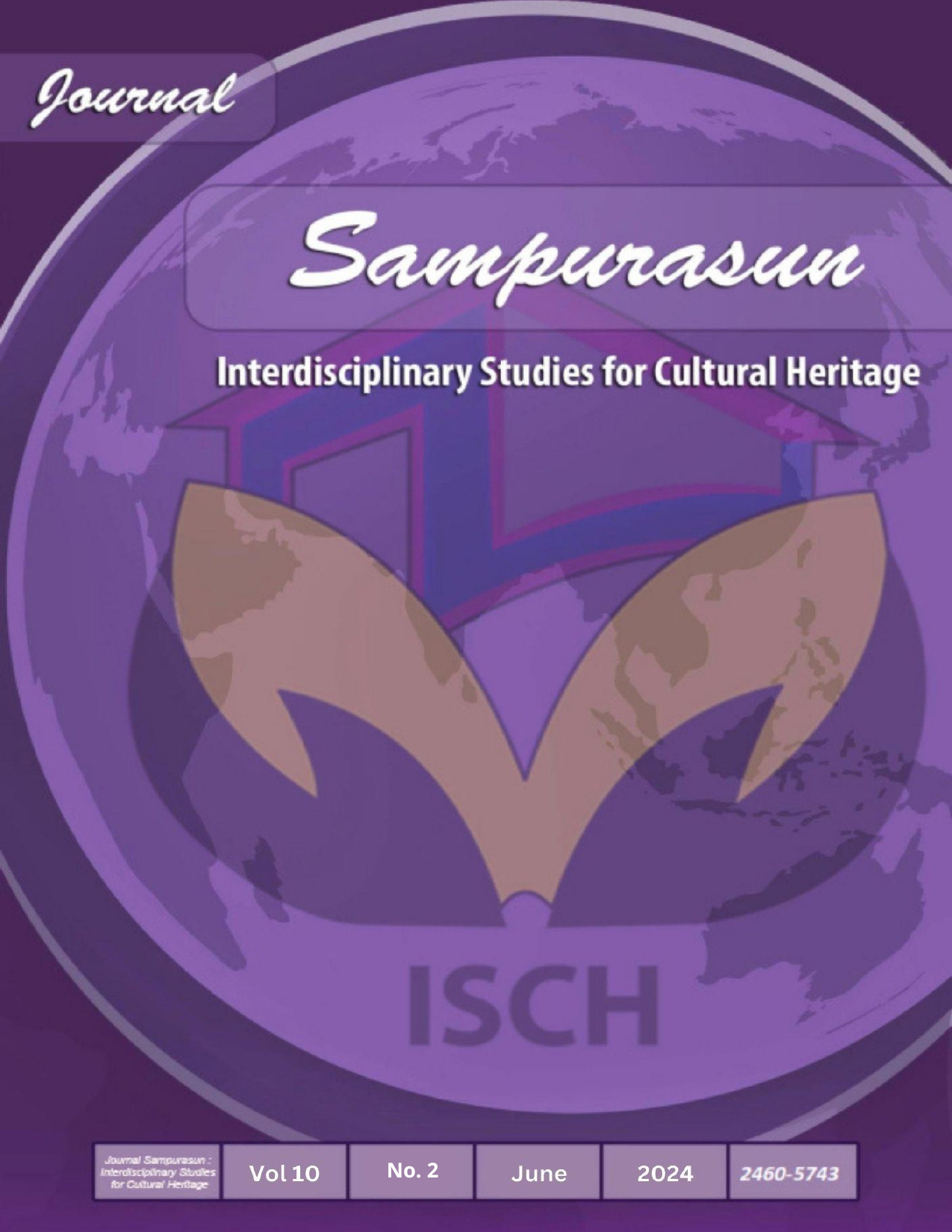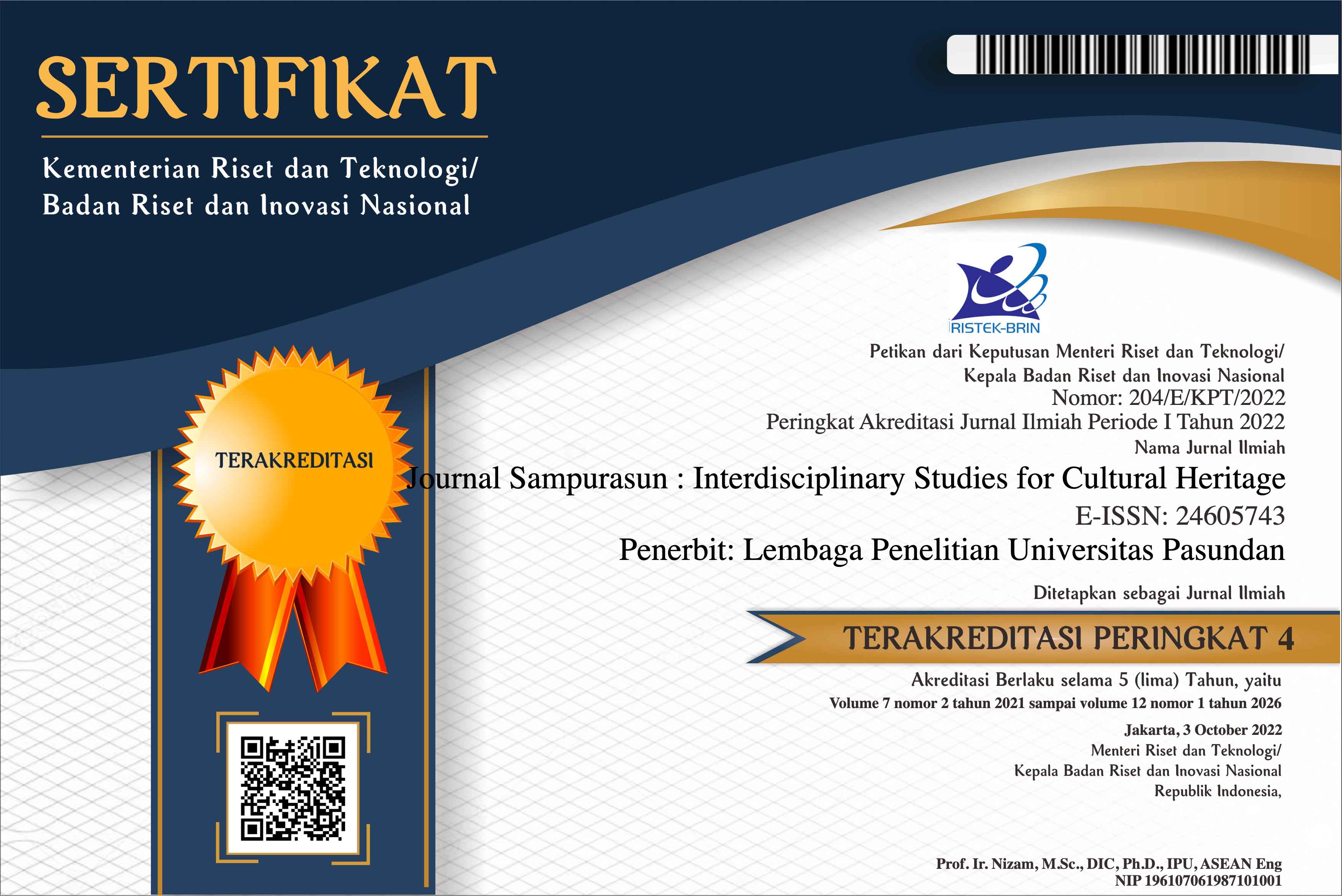FOOD IMPULSIVE BUYING AND PERSONAL NORMS AS PREDICTORS ON FOOD-WASTING BEHAVIOR IN ADOLESCENTS IN MAKASSAR CITY, INDONESIA
DOI:
https://doi.org/10.23969/sampurasun.v10i2.12028Keywords:
food-wasting behavior, personal norms, food impulsive buyingAbstract
Food-wasting behavior can occur when someone does not finish the food they have taken. It can also be seen in purchasing or taking more food than they can consume. Food-impulsive behavior and personal norms are assumed to predict food-wasting behavior, and this study aims to prove this assumption. Personal norms reflect an individual's personal value system in specific situations that can influence specific behaviors, while food impulsive behavior refers to consumers' tendency to buy impulsively, without reflection, immediately, and impulsively. This research was conducted in Makassar City on 150 adolescents aged 12 to 19 years old, and the data were analyzed using multiple linear regression. This study provides three findings. First, food-impulsive behavior and personal norms together can predict food wasting by 32.5% (p=0.000; p<0.05). Second, food-impulsive behavior positively predicts food-wasting behavior by 11% (p=0.000; p<0.05), indicating that the higher someone's food-impulsive behavior, the higher their food-wasting behavior. Third, personal norms can negatively predict food-wasting behavior by 21.5% (p=0.000; p<0.05), indicating that the higher someone's personal norms, the lower their food-wasting behavior.
Downloads
References
Abrahamse, W. (2019). Understanding the Drivers of Human Behaviour. In Encouraging Pro-Environmental Behaviour (pp. 11–25). Elsevier. https://doi.org/10.1016/B978-0-12-811359-2.00002-0
Caldeira, C., De Laurentiis, V., & Sala, S. (2019). Assessment of food waste prevention actions: Development of an evaluation framework to assess performance of food waste prevention actions. Publications Office of the European Union. https://food.ec.europa.eu/system/files/2019-12/fs_eu-actions_eu-platform_jrc-assess-fw.pdf
Cederberg, C., & Sonesson, U. (2011). Global food losses and food waste: Extent, causes and prevention; study conducted for the International Congress Save Food! at Interpack 2011, [16 - 17 May], Düsseldorf, Germany (J. Gustavsson, Ed.). International Congress Save Food!, Rome. Food and Agriculture Organization of the United Nations. https://www.fao.org/3/i2697e/i2697e.pdf
Chen, X., Kassas, B., & Gao, Z. (2021). Impulsive purchasing in grocery shopping: Do the shopping companions matter? Journal of Retailing and Consumer Services, 60, 102495. https://doi.org/10.1016/j.jretconser.2021.102495
Cooreman-Algoed, M., Minnens, F., Boone, L., Botterman, K., Taelman, S. E., Verbeke, W., Devleesschauwer, B., Hung, Y., & Dewulf, J. (2021). Consumer and Food Product Determinants of Food Wasting: A Case Study on Chicken Meat. Sustainability, 13(13), 7027. https://doi.org/10.3390/su13137027
Datu, S. S., Radde, H. A., & Sudirman, S. (2022). Littering Behavior Ditinjau dari Theory Planned Behavior pada Mahasiswa di Kota Makassar.
De Groot, J. I. M., Bondy, K., & Schuitema, G. (2021). Listen to others or yourself? The role of personal norms on the effectiveness of social norm interventions to change pro-environmental behavior. Journal of Environmental Psychology, 78, 101688. https://doi.org/10.1016/j.jenvp.2021.101688
FAO (Ed.). (2014). Mitigation of food wastage: Societal costs and benefits. FAO.
FAO UN. (2013). Food wastage footprint: Impacts on natural resources: summary report. FAO. https://www.fao.org/3/i3347e/i3347e.pdf
Food Tops List of Impulse Purchases, These unplanned buys cut across generations. (2018). https://www.insiderintelligence.com/content/food-tops-list-of-impulse-purchases
Food wastage footprint full-cost accounting: Final report. (2014). Food Wastage Footprint.
Garson, G. D. (2016). Partial Least Squares: Regression & Structural Equation Models. Statistical Associates Publishing. https://www.smartpls.com/resources/ebook_on_pls-sem.pdf
Grandhi, B., & Appaiah Singh, J. (2016). What a Waste! A Study of Food Wastage Behavior in Singapore. Journal of Food Products Marketing, 22(4), 471–485. https://doi.org/10.1080/10454446.2014.885863
Hagger, M. S. (2019). The Reasoned Action Approach and the Theories of Reasoned Action and Planned Behavior. In M. S. Hagger, Psychology. Oxford University Press. https://doi.org/10.1093/obo/9780199828340-0240
Handgraaf, M., Griffioen, A., Bolderdijk, J. W., & Thøgersen, J. (2017). Economic Psychology and Pro‐Environmental Behaviour. In R. Ranyard (Ed.), Economic Psychology (1st ed., pp. 435–450). Wiley. https://doi.org/10.1002/9781118926352.ch27
Hasbiah, A. (2015). Analysis of Local Wisdom as Environmental Conservation Strategy in Indonesia. Journal Sampurasun : Interdisciplinary Studies for Cultural Heritage, 1(1). https://doi.org/10.23969/sampurasun.v1i1.19
Iyer, G. R., Blut, M., Xiao, S. H., & Grewal, D. (2020). Impulse buying: A meta-analytic review. Journal of the Academy of Marketing Science, 48(3), 384–404. https://doi.org/10.1007/s11747-019-00670-w
Jansson, J., & Dorrepaal, E. (2015). Personal Norms for Dealing with Climate Change: Results from a Survey Using Moral Foundations Theory. Sustainable Development, 23(6), 381–395. https://doi.org/10.1002/sd.1598
Jones-Garcia, E., Bakalis, S., & Flintham, M. (2022). Consumer Behaviour and Food Waste: Understanding and Mitigating Waste with a Technology Probe. Foods, 11(14), 2048. https://doi.org/10.3390/foods11142048
Karim, M. W., Chowdhury, M. A. M., Masud, M. A. A., & Arifuzzaman, Md. (2021). Analysis of Factors influencing Impulse Buying behavior towards e-tailing sites: An application of S-O-R model. Contemporary Management Research, 17(2), 97–126. https://doi.org/10.7903/cmr.20457
Kim, S. H., & Seock, Y.-K. (2019). The roles of values and social norm on personal norms and proenvironmentally friendly apparel product purchasing behavior: The mediating role of personal norms. Journal of Retailing and Consumer Services, 51, 83–90. https://doi.org/10.1016/j.jretconser.2019.05.023
Klöckner, C. A. (2013). A comprehensive model of the psychology of environmental behaviour—A meta-analysis. Global Environmental Change, 23(5), 1028–1038. https://doi.org/10.1016/j.gloenvcha.2013.05.014
Lumbo, S. G. (2017). Enduring Climate Change And Food Insecurity Through Charcoal Production: A Poverty Coping Strategy Of Reluctantindigenous Women In The Philippines. Journal Sampurasun : Interdisciplinary Studies for Cultural Heritage, 3(1), 33. https://doi.org/10.23969/sampurasun.v3i1.164
Misiak, M., Butovskaya, M., & Sorokowski, P. (2018). Ecology shapes moral judgments towards food-wasting behavior: Evidence from the Yali of West Papua, the Ngorongoro Maasai, and Poles. Appetite, 125, 124–130. https://doi.org/10.1016/j.appet.2017.12.031
Misiak, M., Kruger, D., Kruger, J. S., & Sorokowski, P. (2020). Moral judgments of food wasting predict food wasting behavior. British Food Journal, 122(11), 3547–3565. https://doi.org/10.1108/BFJ-07-2019-0576
Mondéjar-Jiménez, J.-A., Ferrari, G., Secondi, L., & Principato, L. (2016). From the table to waste: An exploratory study on behaviour towards food waste of Spanish and Italian youths. Journal of Cleaner Production, 138, 8–18. https://doi.org/10.1016/j.jclepro.2016.06.018
Niemiec, R. M., Champine, V., Vaske, J. J., & Mertens, A. (2020). Does the Impact of Norms Vary by Type of Norm and Type of Conservation Behavior? A Meta-Analysis. Society & Natural Resources, 33(8), 1024–1040. https://doi.org/10.1080/08941920.2020.1729912
Nordlund, A. M., & Garvill, J. (2003). Effects of values, problem awareness, and personal norm on willingness to reduce personal car use. Journal of Environmental Psychology, 23(4), 339–347. https://doi.org/10.1016/S0272-4944(03)00037-9
Nurhayati, A., & Burhanto, G. (2023). THE OPENNESS OF ACCESS AND BEHAVIOR OF DISPOSING OF GARBAGE ON THE RIVERBANKS. Journal Sampurasun : Interdisciplinary Studies for Cultural Heritage, 9(1), 21–32. https://doi.org/10.23969/sampurasun.v9i1.7054
Obuobi, B., Zhang, Y., Adu-Gyamfi, G., & Nketiah, E. (2023). Households’ food waste behavior prediction from a moral perspective: A case of China. Environment, Development and Sustainability. https://doi.org/10.1007/s10668-023-03136-w
Onwezen, M. C., Antonides, G., & Bartels, J. (2013). The Norm Activation Model: An exploration of the functions of anticipated pride and guilt in pro-environmental behaviour. Journal of Economic Psychology, 39, 141–153. https://doi.org/10.1016/j.joep.2013.07.005
Papalia, D. E., Olds, S. W., & Feldman, R. D. (2009). Human development (Eleventh edition). McGraw-Hill.
Pelau, C., Sarbu, R., & Serban, D. (2020). Cultural Influences on Fruit and Vegetable Food-Wasting Behavior in the European Union. Sustainability, 12(22), 9685. https://doi.org/10.3390/su12229685
Qian, K., Javadi, F., & Hiramatsu, M. (2020). Influence of the COVID-19 Pandemic on Household Food Waste Behavior in Japan. Sustainability, 12(23), 9942. https://doi.org/10.3390/su12239942
Rachman, I. (2017). EFFECT OF ENVIRONMENTAL EDUCATION WORKSHOP ON THE KNOWLEDGE, ATTITUDE, AND BEHAVIOR CHANGES OF THE STUDENT OF ELEMENTARY SCHOOL -STUDY CASE IN LEBAK SILIWANGI – BANDUNG, INDONESIA -. Journal Sampurasun : Interdisciplinary Studies for Cultural Heritage, 2(2), 132. https://doi.org/10.23969/sampurasun.v2i2.171
Rachman, I., Toru, M., & Yustiani, Y. M. (2015). Influence of Parent’s Behavior to the Children Awareness on the Environmental Preservation. Journal Sampurasun : Interdisciplinary Studies for Cultural Heritage, 1(1). https://doi.org/10.23969/sampurasun.v1i1.22
Rook, D. W., & Fisher, R. J. (1995). Normative Influences on Impulsive Buying Behavior. Journal of Consumer Research, 22(3), 305–313.
SIPSN. (2023). Komposisi Sampah [Dataset]. https://sipsn.menlhk.go.id/sipsn/public/data/komposisi
Su, C., & Lu, P. (2018). A study of the factors influencing customers’ impulse buying behavior in restaurants. Advances in Hospitality and Tourism Research (AHTR), 6(1), 47–67. https://doi.org/10.30519/ahtr.421377
Tomasello, M. (2020). The moral psychology of obligation. Behavioral and Brain Sciences, 43, e56. https://doi.org/10.1017/S0140525X19001742
Tsai, W.-C., Chen, X., & Yang, C. (2020). Consumer Food Waste Behavior among Emerging Adults: Evidence from China. Foods, 9(7), 961. https://doi.org/10.3390/foods9070961
UNEP. (2021). Food Waste Index Report 2021 (Food Waste Index Report 2021). United Nations Environment Programme. https://www.unep.org/resources/report/unep-food-waste-index-report-2021
Wang, Y., Pan, J., Xu, Y., Luo, J., & Wu, Y. (2022). The Determinants of Impulsive Buying Behavior in Electronic Commerce. Sustainability, 14(12), 7500. https://doi.org/10.3390/su14127500
You, F., Bhamra, T., & Lilley, D. (2020). Why Is Airline Food Always Dreadful? Analysis of Factors Influencing Passengers’ Food Wasting Behaviour. Sustainability, 12(20), 8571. https://doi.org/10.3390/su12208571
Downloads
Published
How to Cite
Issue
Section
License
Copyright (c) 2024 Journal Sampurasun : Interdisciplinary Studies for Cultural Heritage

This work is licensed under a Creative Commons Attribution 4.0 International License.
Copyright Notice
Authors should not withdraw their submitted papers because the withdrawal wastes voluntary works devoted by an associate editor and reviewers. But, we accept the withdrawal of a submitted paper if authors have unavoidable reasons. In the event that a manuscript is to be withdrawn from submission to Sampurasun Journal, a letter must be sent to the editorial office requesting withdrawal by e-mail (sampurasunjournal@unpas.ac.id) with its scanned PDF file, before the notification of acceptance for publication.
The withdraw request letter must include the following information. Paper ID, Paper title, Authors names, Reason why the paper must be withdrawn, and Date and signatures of all the authors (or signature of the contact author).
If only the contact author signs the letter, he/she must obtain the agreement of the withdrawal from all the other authors and the letter must include the description that all the other authors agreed the withdrawal. The journal will not withdraw a manuscript from peer review until such a letter has been received. Authors must not assume their manuscript has been withdrawn until they have received appropriate notification from the editorial office. Withdrawal of a manuscript subsequent to acceptance for publication will only be granted in the most exceptional of circumstances.
After the paper is accepted for publication, the withdrawal is not permitted in principle. The authors must always pay the charge even if the withdrawal is permitted. Any request of withdrawal that does not follow the above procedure is treated as invalid. If illegal submission, e.g., plagiarized or duplicate submission, is found for a paper, the withdrawal of the paper will never be permitted and the authors will be punished based on the rule. It is not acceptable practice to withdraw a manuscript in the event of acceptance at another journal. This constitutes dual submission. The editorial office of the other journal will be notified of your actions. In such circumstances Sampurasun ISCH may chose to impose appropriate punitive action subject.
Withdrawal Penalty
Author is not allowed to withdraw submitted manuscripts, because the withdrawal is waste of valuable resources that editors and referees spent a great deal of time processing submitted manuscript, money and works invested by the publisher. If author still requests withdrawal of his/her manuscript when the manuscript is still in the peer-reviewing process, author will be punished with paying $200 per manuscript, as withdrawal penalty to the publisher. However, it is unethical to withdraw a submitted manuscript from one journal if accepted by another journal. The withdrawal of manuscript after the manuscript is accepted for publication, author will be punished by paying US$500 per manuscript. Withdrawal of manuscript is only allowed after withdrawal penalty has been fully paid to the Publisher. If author don't agree to pay the penalty, the author and his/her affiliation will be blacklisted for publication in this journal. Even, his/her previously published articles will be removed from our online system.


















